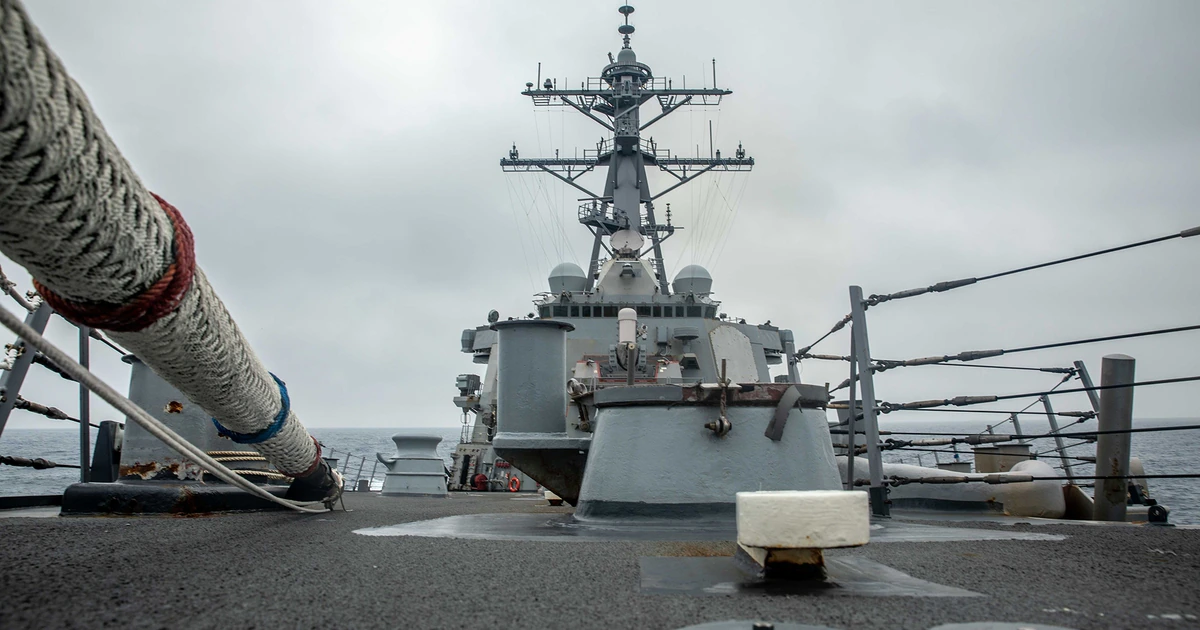
BEIJING (AP) — China on Friday said the U.S. and Australia were “flexing their muscles” with recent naval drills in the South China Sea, underscoring Beijing’s sensitivity over the strategic waterway it claims as its own.
The U.S. Navy’s 7th Fleet said the Arleigh Burke-class guided-missile destroyer Curtis Wilbur and the Royal Australian Navy frigate HMAS Ballarat concluded a week of joint operations in the South China Sea. Those included maneuvering drills along with resupplying vessels, cross-deck helicopter operations and live-fire gunnery exercises.
“The ships honed their advanced mariner skills in a joint environment while enforcing the normalcy of routine operations throughout the region in accordance with international law,” the Navy said.
At a daily briefing in Beijing, Foreign Ministry spokesperson Wang Wenbin said the two countries should “do things that are conducive to regional peace and stability, instead of flexing their muscles.”
The U.S. and China’s neighbors have rejected Beijing’s claim to virtually the entire South China Sea, through which an estimated $5 trillion in trade travels each year.
/cloudfront-us-east-1.images.arcpublishing.com/mco/R5N7KPVZKVDADHK5SSJOHIVIUE.jpg)
Australia has joined them in expressing concern over China’s growing presence in the South China Sea, most notably through its construction of militarized man-made islands built atop coral reefs in the highly disputed Spratly island group. Taiwan, the Philippines, Brunei, Malaysia and Vietnam have claims that overlap with China’s.
China for its part calls the U.S. naval presence in Southeast Asia the biggest threat to regional security, particularly its insistence on sailing close to Chinese-held territories in what is termed freedom of navigation operations.
In a bid to assuage concerns, Beijing hosted foreign ministers from the 10-member Association of Southeast Asian Nations this week, with Foreign Minister Wang Yi telling them China remained committed to signing a long-stalled code of conduct on activities in the South China Sea to prevent conflicts.


Be the first to comment